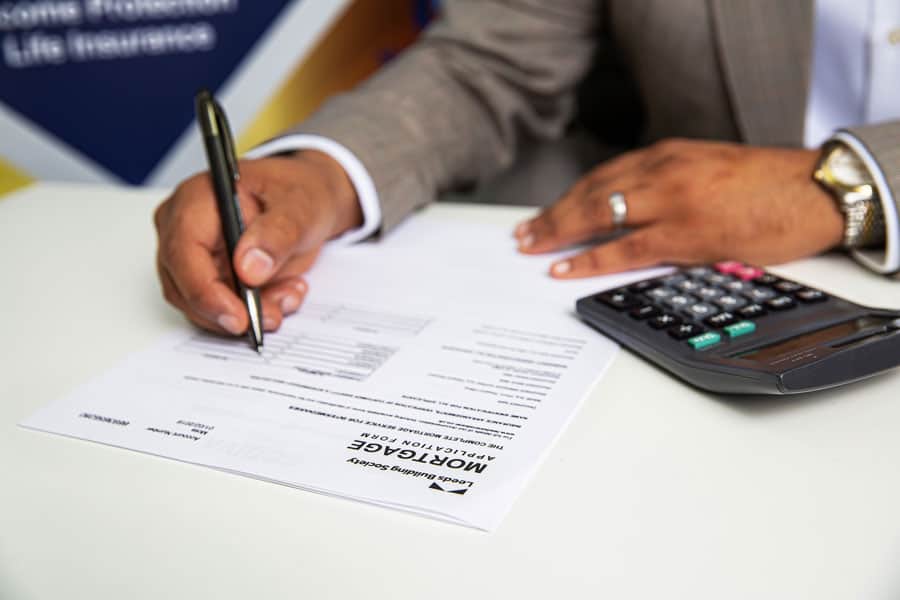Self Employed Mortgages - What you need to know
Can I get a mortgage if I am self-employed?
There is a widely held belief regarding self-employed mortgages, with many people believing that it’s almost impossible to secure a mortgage at a good rate if you are self-employed. However, that is not necessarily the case – it is possible to get an affordable mortgage even if you’re self-employed, so there’s no need to panic.
Is it more difficult to get a mortgage if you are self-employed?
The fact is that in some instances getting a mortgage when you’re self-employed can be somewhat more challenging than getting a mortgage when you are a PAYE applicant. The issue with applying for a mortgage as a self-employed person is the fact that you need to be able to prove that you have a reliable income.
The good news is that there are various steps that you can use to show a mortgage lender that you do have a reliable income and can afford the repayments; usually, it’s a case of filling in some additional paperwork.

How do you get a self-employed mortgages?
When it comes to selecting a mortgage when you’re self-employed, you have access to the same mortgages as anyone else. Just like everyone else, you will need to pass the lender’s affordability checks to be eligible – this is a step that every borrower must undertake.
The difference comes in due to the fact that as a self-employed trader you have no employer to ‘vouch’ for your income; it’s for this reason that self-employed people are required to provide additional evidence of income compared to employed people.
The criteria that you need to meet in order to be able to access a mortgage is extremely strict – a mortgage lender will need to be able to see proof that you will be able to afford the cost of your mortgage before they agree to provide you with the loan amount that you require.
How can you improve your chances of being accepted?
The good news is that there is a range of steps that you can take to increase your chances of being approved by a mortgage lender for a mortgage. These steps include:
- Save a high deposit - the higher your deposit amount, the better
- Improve your credit rating
- Correct any credit report issues
- Speak to a mortgage broker
- Find a specialist lender for your mortgage
How are self-employed mortgages assessed?
When it comes to how you will be assessed as a self-employed mortgages applicant, you will fall into one of three categories: sole trader, partnership, or limited company. The category that you fall into will impact how your mortgage application is assessed.
Sole trader: If it’s just you, you or your accountant – can declare your income via the HMRC self-assessment tool. Once this has been completed, you can then request a SA302 form and a Tax Year Overview, which will outline your income and tax that has been paid. Mortgage lenders will base your application on this information.
Partnership: If you run your business with someone else, your individual share of the business and your profits will be focused on.
Limited Company: If you have a limited company, your business accounts will be separate from your personal accounts. As a director of a company, you most likely pay yourself a salary and dividend payments – lenders will take both incomes into account when it comes to your mortgage application. Some lenders can also take retained profits in the business along with salary instead of dividends if you can provide finalised company accounts. This can help people who keep money in the business and do not pay themselves a dividend to increase their borrowing ability.

Can I get a Mortgage with 1 years accounts?
While most lenders will want a track record of earnings over at least 2 years, there are some circumstances where getting a mortgage with 1 year of accounts can work.
Firstly, lenders like to see that you have experience in the same field of business and the role you were doing previously has a direct link to your current business. This provides the lender with confidence in your ability to sustain the business and income, as you have the experience needed.
Secondly, lenders will often ask for projections for the second year by a qualified accountant. This can be vital and if prepared accurately with evidence of ongoing contracts which inturn shows demand, again this shows a lender that they can be confident in your business being successful and your ability to sustain your income and expenditure
Can working with a specialist mortgage broker help?
If you want to further improve your chances of having your mortgage application accepted, it’s a good idea to think about finding a specialist mortgage broker to help you with your application. If you are going to work with a mortgage broker, it’s a good idea to source a specialist mortgage broker for self-employed mortgages, as this will help to increase your chances of application success.
A specialist mortgage broker will be able to source specific self-employed mortgage options, suited to the needs of self-employed people. A mortgage broker will be able to determine who the most likely lenders are who will be able to offer you the mortgage amount that you require. By choosing to go down this route, you can reduce the risk of your mortgage application being declined. A declined mortgage application can have an impact on your credit score, which is why it’s so important to ensure that your application is now declined.
While getting a mortgage as a self-employed person can be somewhat more difficult, that does not mean that it’s impossible to have your mortgage application approved.
‘Your home may be repossessed if you do not keep up repayments on your mortgage‘
Why Matrix Mortgages
- Raising The standards of Mortgage advice
- Making Mortgage advice accessible to all
- Trusted & stress-free Mortgage advice
- Friendly, personable advisors
Click here to access your credit report
Please be aware that by clicking on to this link you are leaving the Matrix Mortgages website. Please note that Matrix Mortgages nor HL Partnership Ltd are responsible for the accuracy of the information contained within the linked site(s) accessible from this page.

